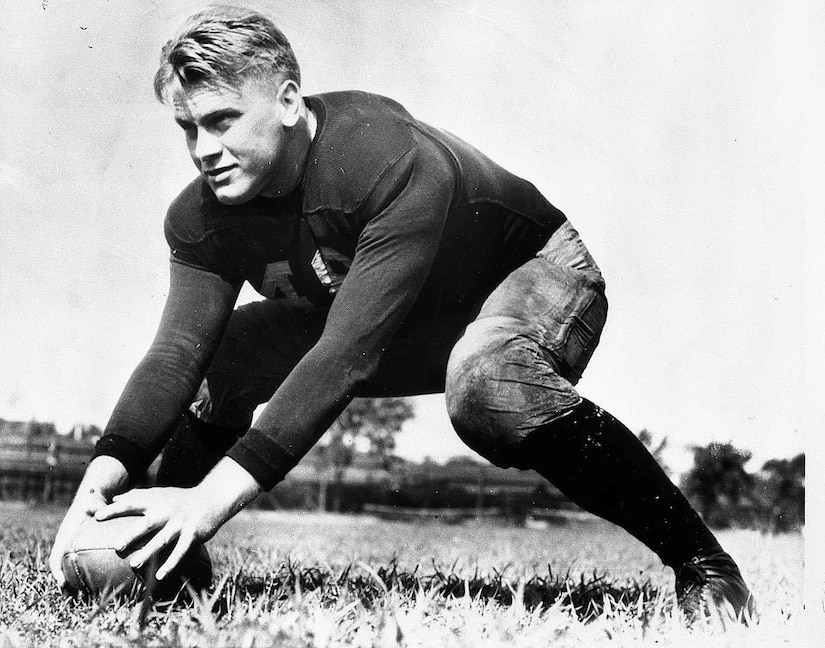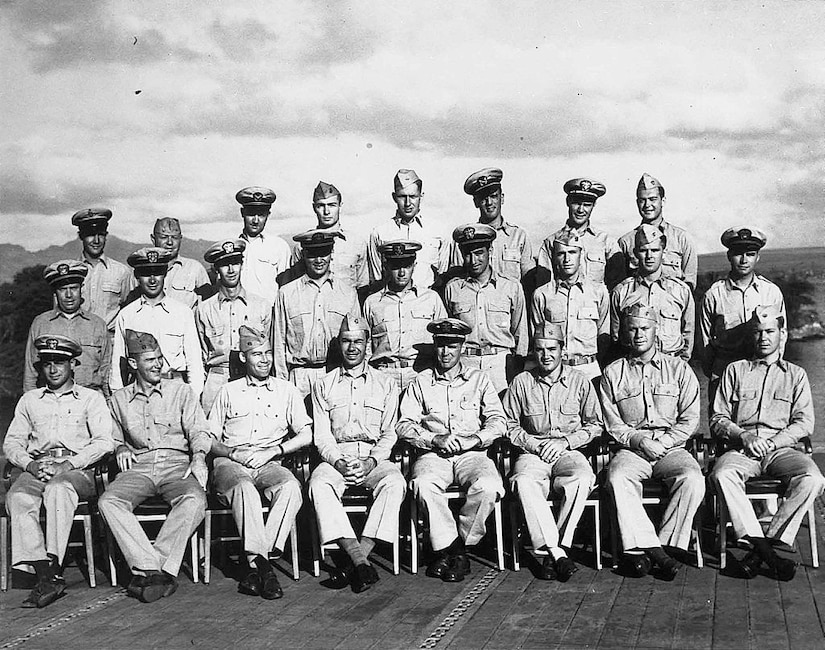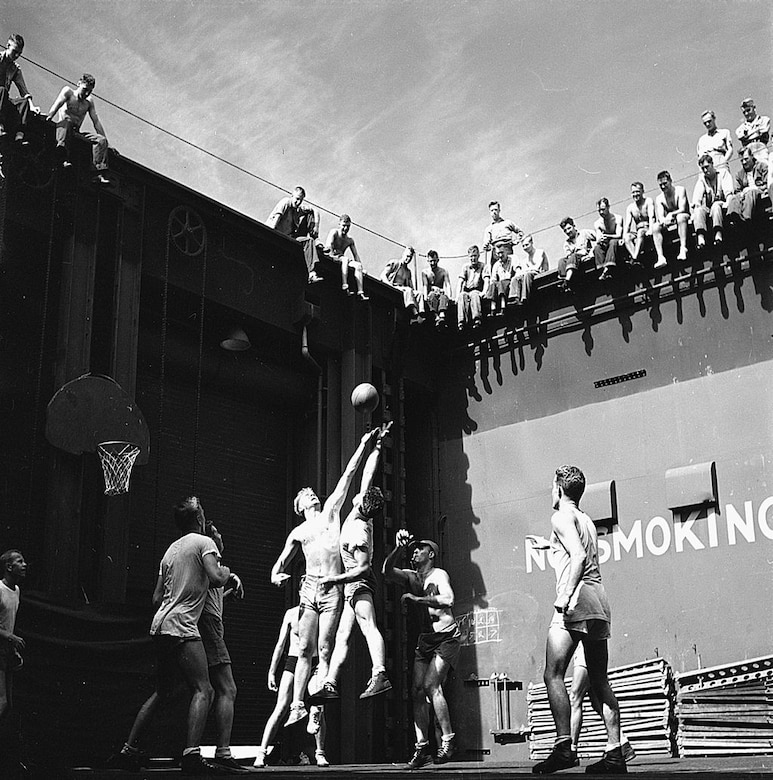Feb. 16, 2021 | , DOD News
Gerald Ford, 38th president of the United States, World War II Navy veteran and collegiate football star, is also the president who, in 1975, signed Public Law 94-106 admitting women to the all-male military colleges — West Point, Annapolis and the Air Force Academy.

Ford attended the University of Michigan, where he played center, linebacker and long snapper for the Wolverines football team. The Big 10 team had two undefeated seasons and won national titles in 1932 and 1933.
However, even though the team won only one game In 1934, Ford was considered the team's star player.
He was a star player off the field, as well. That year, the Wolverines were scheduled to play Georgia Tech, which said it would not play Michigan if a Black player named Willis Ward took the field, and University officials kept Ward out of the game.
Ford was Ward's best friend on the team, and they roomed together during road trips. Ford threatened to quit the team in response to the university's decision. He eventually agreed to play against Georgia Tech, but it was only after Ward personally asked him to play.

On April 13, 1942, shortly after the start of World War II, Ford received a commission as an ensign in the Navy Reserve. He attended flight school in Annapolis, Maryland, and became an instructor at Navy Preflight School in Chapel Hill, North Carolina, where he taught navigation skills, ordnance, gunnery, first aid and military drill. He also coached swimming, boxing and football.
After Ford was promoted to lieutenant, in March 1943, he was assigned to the new aircraft carrier USS Monterey, at New York Shipbuilding Corporation, Camden, New Jersey.
From the ship's commissioning on June 17, 1943, until the end of December 1944, Ford served as the assistant navigator, athletic officer and anti aircraft battery officer on the Monterey.
In 1943, the Monterey saw combat action in the Pacific Theater, including at Makin Island in the Gilberts, and New Ireland. During the spring of 1944, the Monterey supported landings at Kwajalein and Eniwetok and participated in carrier strikes in the Marianas, Western Carolines, and northern New Guinea, as well as in the Battle of the Philippine Sea.

In November and December 1944, the Monterey's aircraft launched strikes against Wake Island and the Ryukyu Islands of Japan, and supported the landings at Leyte and Mindoro in the Philippines.
The Monterey was one of several ships damaged by Typhoon Cobra that hit Navy Adm. William Halsey's Third Fleet on December 18-19, 1944. The Monterey was damaged by a fire, which was ignited by several of the ship's aircraft tearing loose from their cables and colliding on the hangar deck.
As the general quarters officer of the deck, it was Ford's job to assess the damage and help contain the fire. The ship got underway again but was declared unfit for service due to the extensive damage that occurred.
In 1945, Ford was stationed at the Navy Pre-Flight School at Saint Mary's College of California, where he was assigned to the athletic department until April 1945. From the end of April 1945 to January 1946, he was on the staff of the Naval Reserve Training Command, Naval Air Station, Glenview, Illinois, with a rank of lieutenant commander. He received an honorable discharge in February 1946.

Interesting Ford Facts
- Ford once said that his experiences on the gridiron helped prepare him for the "rough-and-tumble world of politics."
- In honor of his athletic accomplishments, the University of Michigan retired Ford's No. 48 jersey in 1994. With the permission of the Ford family, it was placed back into circulation in 2012.
- When he became president, Ford often had the Navy band play the University of Michigan fight song, "The Victors," instead of "Hail to the Chief."
- Ford graduated from Michigan in 1935 and received offers to play football with the Detroit Lions and Green Bay Packers of the National Football League. Instead, he took a job in September 1935 as the boxing coach and assistant varsity football coach at Yale University, where he also attended and graduated from law school.
- Gerald Ford's name at birth, July 14, 1913, was Leslie Lynch King Jr. Ford's parents later divorced and on Dec. 3, 1935, Ford legally changed his name to Gerald Rudolph Ford Jr., in honor of his stepfather, who had that name except for the junior.









No comments:
Post a Comment